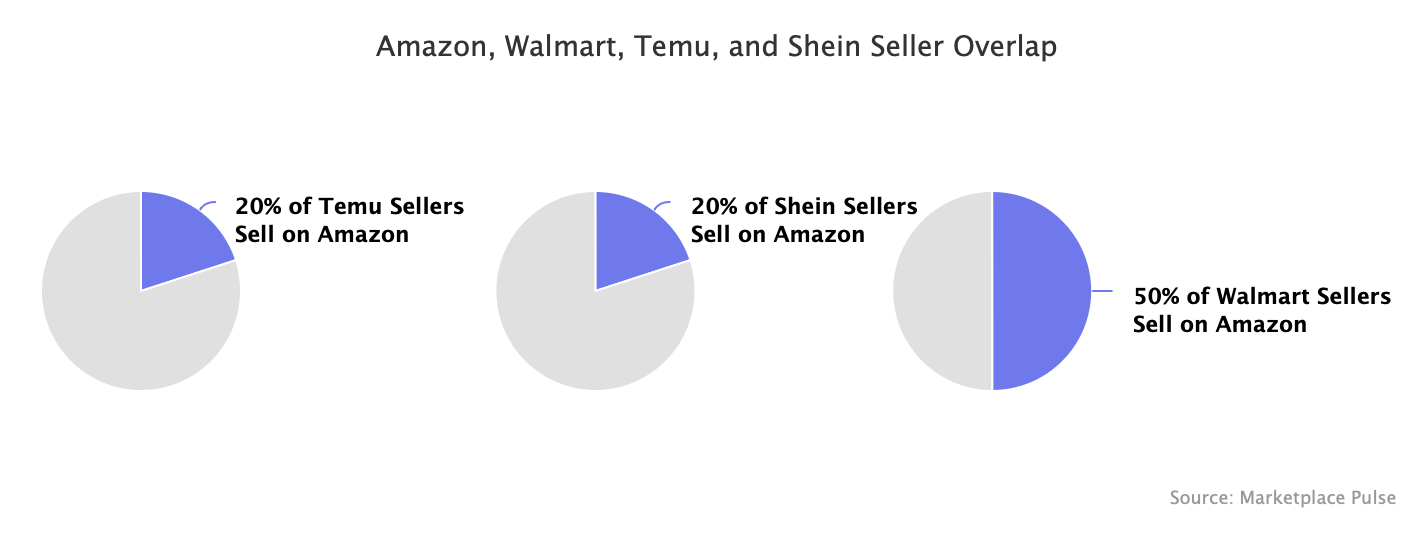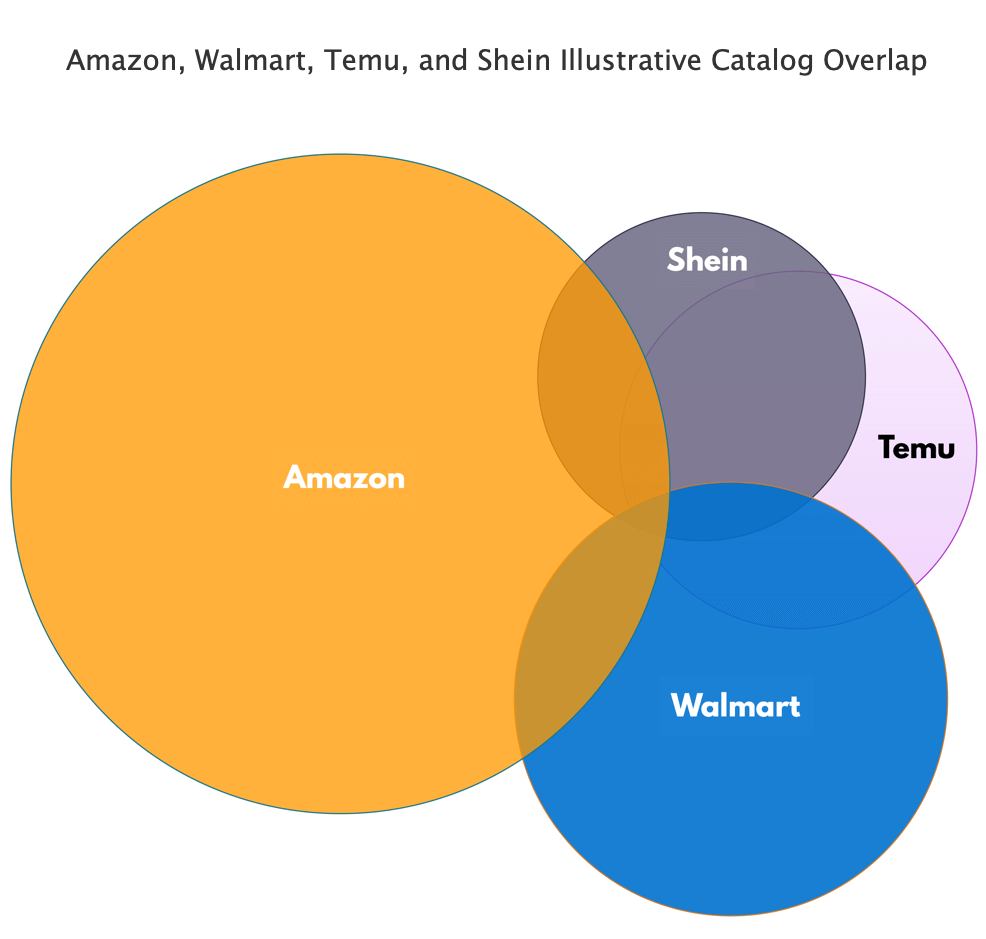Amazon, Walmart, Temu, and Shein sell many of the same goods, often sold by the same third-party sellers.
According to Marketplace Pulse research, more than 50% of Walmart sellers also sell on Amazon. The number is undercounted because sellers were compared using their business name, which, while normalized to remove common differences like “LLC” versus “L.L.C.,” couldn’t account for all variations. The overlap is likely closer to 80-90% as the average seller typically starts with Amazon and then expands to Walmart; it’s rare to see Walmart-only or Walmart-first sellers.
At least 20% of Shein marketplace and Temu’s recently launched marketplace sellers also sell on Amazon and Walmart. Like with Walmart, the actual overlap is likely higher. Almost all are Chinese sellers with inventory in the U.S. Amazon, and Walmart are ideal sources of sellers for Shein and Temu because those sellers are experienced in selling internationally and have imported inventory. In March, more than 50% of new sellers on Amazon and Walmart were based in China; many of them have joined Shein and Temu or will soon.

Because of Amazon’s indirect price-parity requirement, sellers typically sell on Amazon and Walmart at the same prices. Temu and Shein have lower fees and no advertising spend, allowing sellers to sell for less. However, their items are usually available on Amazon and Walmart with faster shipping. Yet, while still slower than two-day shipping, Shein and Temu are growing marketplaces specifically because they add faster inventory than their mostly direct-from-China products.

Amazon’s catalog is an order of magnitude bigger than the rest, and it also includes many of the same items as Walmart, Temu, and Shein, except for clothing items on Shein. Walmart is a subset of Amazon’s assortment, but onboarding the same sellers will erode that gap. Temu only stocks some of the brands Amazon and Walmart have, but most of what they sell is for sale there. Shein has a unique strength in fast-fashion clothing, but other items are close to Temu.
The overlap of Amazon, Walmart, Temu, and Shein is increasing. Low prices on Temu and Shein create an illusion that the selection is unique, but many of the same items have been available before but cost more because they ship faster. And now that both run marketplaces, the overlap will only accelerate. Amazon and Walmart, however, have a wider selection that typically comes from their retail relationships with brands; there is no path for Temu and Shein to match that. In China, Temu’s parent company, PDD, eventually grew beyond its original selection to become one of the biggest sales channels for brands like Apple. That same pivot or expansion will be much trickier in the U.S.

